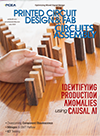ROI
 As the challenges of training evolve, so does the definition of lean.
As the challenges of training evolve, so does the definition of lean.
An organization cannot become lean without tons of training.
Think about that oxymoron for a moment. It takes time to train, time that a lean organization cannot sacrifice. Training in this industry, which utilizes many varying yet intertwined processes, has traditionally taken the form of on-the-job training (OJT) versus a formal, classroom-style format. In any organization, especially a lean one, OJT is much easier to administrate and far less disruptive to employees and production than other types of training. In a service industry, even in support positions off the shop floor, it is much easier to take someone offline and plunk them down for formal training. In a lean manufacturing environment, however, excess resources in any given job function or department are rare. Hence, most training is integrated into the daily workflow as OJT.
 Supply chain fatigue taking hold? It’s all in a day’s work.
Supply chain fatigue taking hold? It’s all in a day’s work.
I can’t think of a more exciting time than now, especially for the PCB industry. Risk has always been a friend and catalyst to our industry. There has rarely been more types of risk, and never as varied, for all industries and companies, large and small, to navigate. As varied as it may be, all those challenges seem to boil down to three basic categories: technology transfer; geopolitical posturing; and logistics fatigue. The single common denominator to all? People.
My bet is that dealing with new technology, and the transfer of that technology to displace or enhance tried-and-true methodologies, is the easiest for our industry to wrap itself around. The risk and reward of new technology is well understood. It has been the hallmark of how and why we are in business and prosper. However, for those in the auto industry, which has over 100 years of understanding of mechanical and internal combustion equipment, the dawning of hybrid and electronic technologies to propel a vehicle, let alone control and monitor performance – with or without a driver – brings nothing but risk. For our industry, supplying this transfer from mechanical to electronics creates a different type of risk. Now “consumer” products must be as rugged as the toughest military or aerospace application, or even more so, because the sheer number of lives at risk are greater and the operating environment less controlled.
 Are we about to return to an era of rapid inflation escalations?
Are we about to return to an era of rapid inflation escalations?
When you have been around the block as many times as me, events eerily remind you of similar events from a different time. Or, as legendary baseball player Yogi Berra supposedly said, “It’s like déjà vu all over again!”
I began my career in the mid-1970s. Those were very different times. Technology was primitive compared to what we take for granted today. “Social media” was confined to writing a letter (on paper!) or picking up a phone (tethered to the wall!). Another distinction was something called inflation. For the span from the early ’70s through the mid-’80s, the annual inflation rate ranged between 12% and 20%.
Working for a large, global, electronic connector company at that time, one of the jobs I held was that of division “pricing administrator.” When promoted to the position, I remember feeling heady about so much responsibility. I soon realized I was going to be a very busy guy.
 Old fabrication equipment never dies. It keeps getting reengineered for the future.
Old fabrication equipment never dies. It keeps getting reengineered for the future.
How far can you push the envelope? I have asked myself that question for years as I watch the advancement of technology and the fabricated PCBs that anchor that technology. And just when it appears a new and insurmountable challenge has come along, our industry devises a creative solution that catapults us even further ahead.
So, I continue to wonder. I have seen processes and equipment developed when 12/12 spacing was cutting-edge honed and dialed in to reliably produce 2/2 spacing. Drilling equipment that once could drill no smaller than 12 mil holes now regularly forms holes half that diameter. “High aspect” was once defined as 5:1. Now 10:1 is low aspect. All this on old equipment. Install the latest generation of equipment and capabilities exponentially improve.
 Ask only for what you need for practical decision-making.
Ask only for what you need for practical decision-making.
Not a day goes by that I am not asked, or demanded, to provide volumes of data on what appear to be trivial things. Between DFARS flow-downs, NIST protocols, Dodd/Frank requirements and AS/ISO documentation, the verification and validation needs have reached hyper levels. But as time spent providing these data grows exponentially, I keep returning to two simple questions: Does the requester really know what they need? And is the information provided truly accurate?
We are a product of our experiences. My career commenced in the mid-1970s. Then, I was the “young pup,” the gofer and protegee to more seasoned coworkers. That was the era when businesses were just starting to adopt computers as management tools. The hot new area in every large corporation was the “Management Information Systems” department. They had the sexy new mainframe computers that took up the entire basement, typed code on snazzy keypads, and were able to generate reams of reports containing tons of data.
 The pursuit of a vision, such as a driver-free car, has invaluable benefits.
The pursuit of a vision, such as a driver-free car, has invaluable benefits.
Technology development has been on a tear in the global automotive sector, an industry that could be leading all others in the development of sophisticated electronics. Event after event, the globe has been laser-focused on developments, trials and efforts underway in transportation to make this newly developed technology robust and ruggedized to operate – safely – in the varied and harsh environments automobiles operate. Virtually every system has been redesigned, with electronics and electronic sensors displacing electromechanical and mechanical components. The automobile of today is safer, quicker and more fuel-efficient than was imaginable even a decade back.
In the auto’s transition from a “hunk of bolts” to “elegant high-tech machine,” no aspect has sparked the imagination of engineers, or the greed of investors, more than the development and commercialization of the autonomous vehicle. On one level, I am amazed we are on the verge of harnessing an array of technology that could more safely transport people and cargo than a skilled, experienced driver. But on a different level, I am highly skeptical of the commercial viability of autonomous vehicles. This skepticism is rooted in a simple question: Who really wants an autonomous vehicle?
Press Releases
- Pushed by glass core and high-end ICs substrates for AI, the advanced IC substrate market reaches $31 billion by 2030
- Pushed by glass core and high-end ICs substrates for AI, the advanced IC substrate market reaches $31 billion by 2030
- Ryder Vietnam - Phase 2: Building resilience and meeting demand
- Scanfil and Etteplan deepen their strategic partnership into production testing


